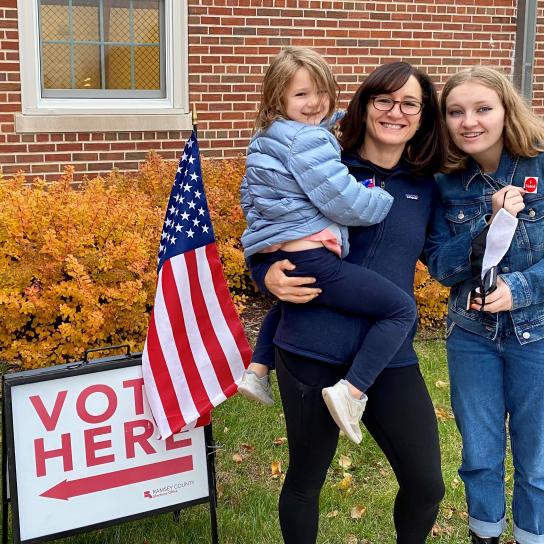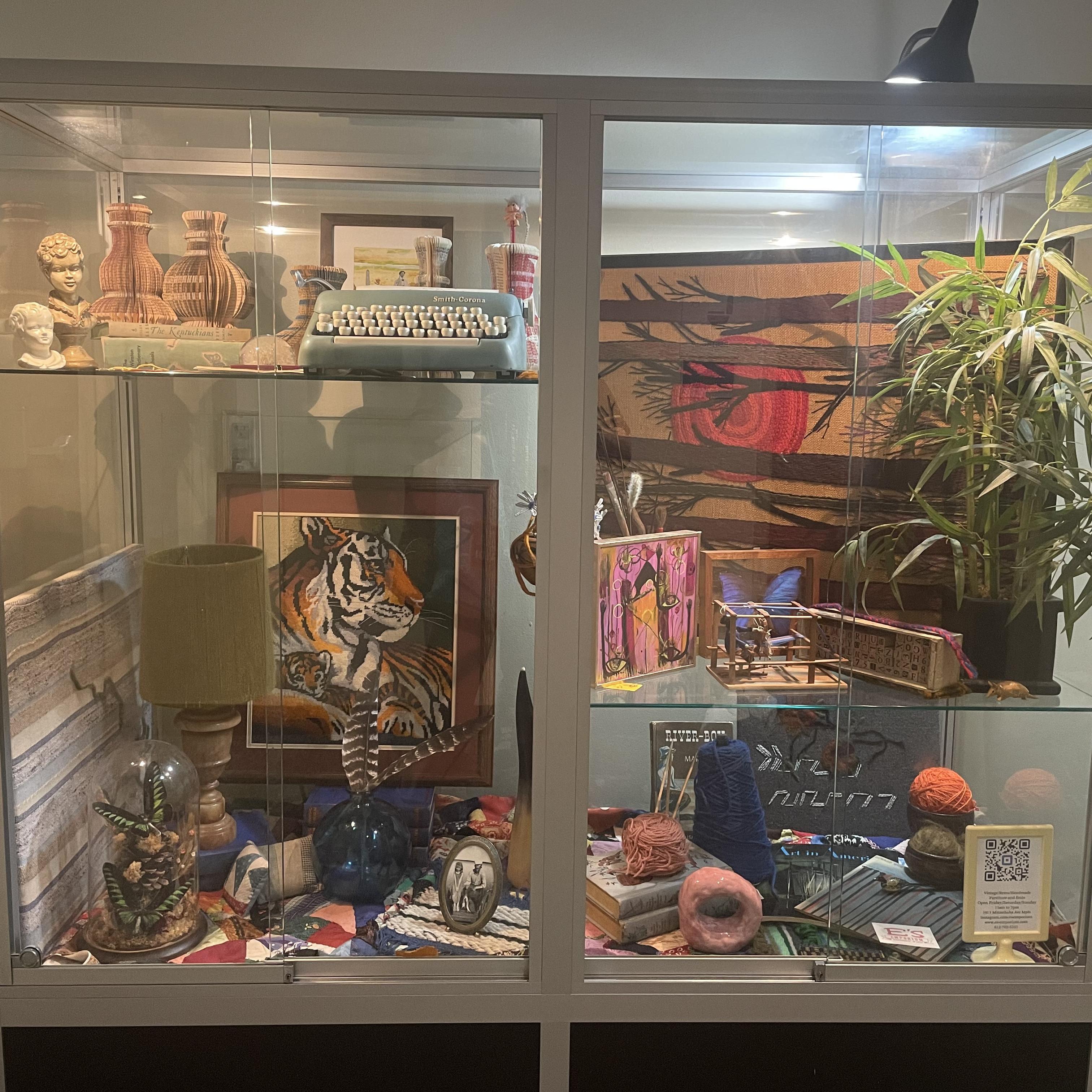Quick Summary
Minnesota's recently concluded legislative session resulted in several new voting laws. In her article for Minitex, Minnesota Voter Outreach Director Melanie Hazelip summarizes the new laws and invites library staff from across the state to join her and Secretary of State Steve Simon for a webinar on August 9.

The 2023 legislative session was a once-in-a-generation opportunity to re-think our election system, expanding and protecting our democracy in Minnesota. The new laws were decades in the making. The laws are nonpartisan in origin and effect, and they have put the national spotlight on Minnesota’s election system.
Perhaps the biggest reform saw 55,000 Minnesotans welcomed back into our democracy with the restoration of voting rights for those with felony convictions who are not incarcerated. These are members of our community, who work, pay taxes, and have kids in schools. And now, they have a vote in who represents them. There are more than 20 states, both red and blue, that have proven this policy works to reintegrate members back into society. The law went into effect in June of 2023.
Automatic Voter Registration will begin in 2024. This will make elections more accessible and secure by ensuring all eligible voters who renew or apply for a new drivers’ license will have their voter registration update. The process is nearly identical to the process we currently use. The only change is instead of checking a box to opt in to register when at the DMV, you now have the option to opt out.
Next, Minnesota is engaging our youth in the democratic process by opening pre-registration to 16- and 17-year-olds, using the same process as anyone else registering to vote. When they turn 18 their pre-registration "flips on" and they are ready to vote in their first election. This law has been proven in other states to increase voter turnout amongst the youngest citizens. It perpetuates the Minnesota culture of civic engagement.
Minnesota also made voting from home easier. Voters now can enroll to receive ongoing absentee ballots every election. You will only need to apply once, and you’ll receive a ballot for each election after, unless you decide to unenroll.
The last major reform is an effort to ensure that Minnesotans who do not speak English as a first language have language assistance when voting. Voting instructions will be available in polling places on election day for the three most commonly spoken languages other than English. Sample ballots will be provided in polling places where at least 3% of the population speaks English “less than very well.” And in precincts where 20% of the population speaks English “less than very well,” translators will be provided.
These are just a few of the laws that will make voting more accessible and secure. If you’d like to learn more, please join me and Secretary of State Steve Simon at noon on August 9 for a special webinar dedicated to library staff. In the meantime, feel free to email me directly at melanie.hazelip@state.mn.us.


